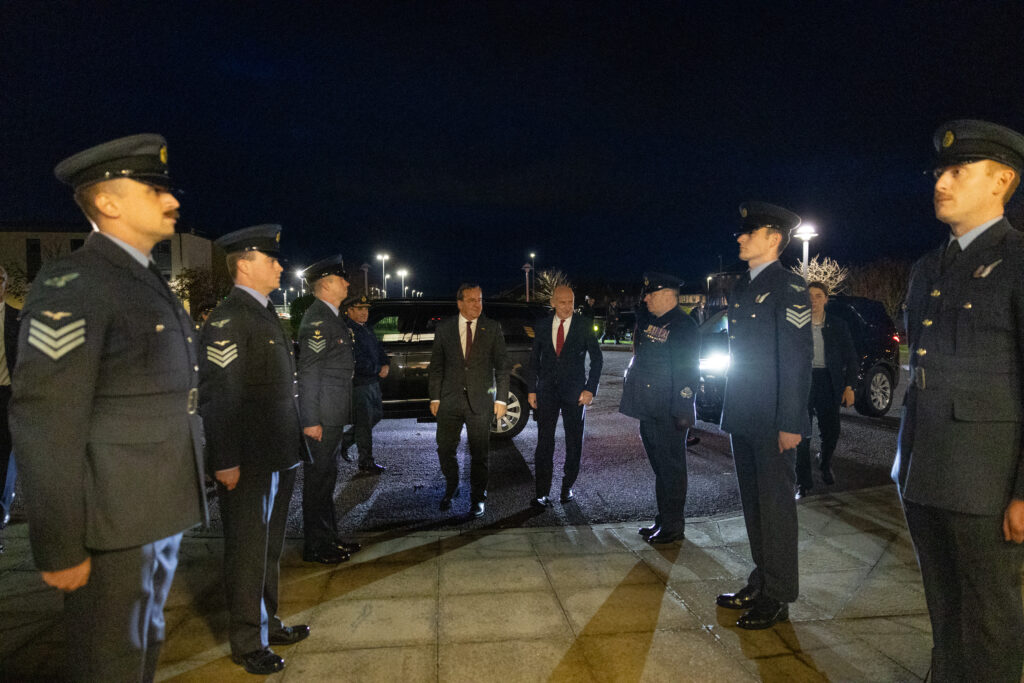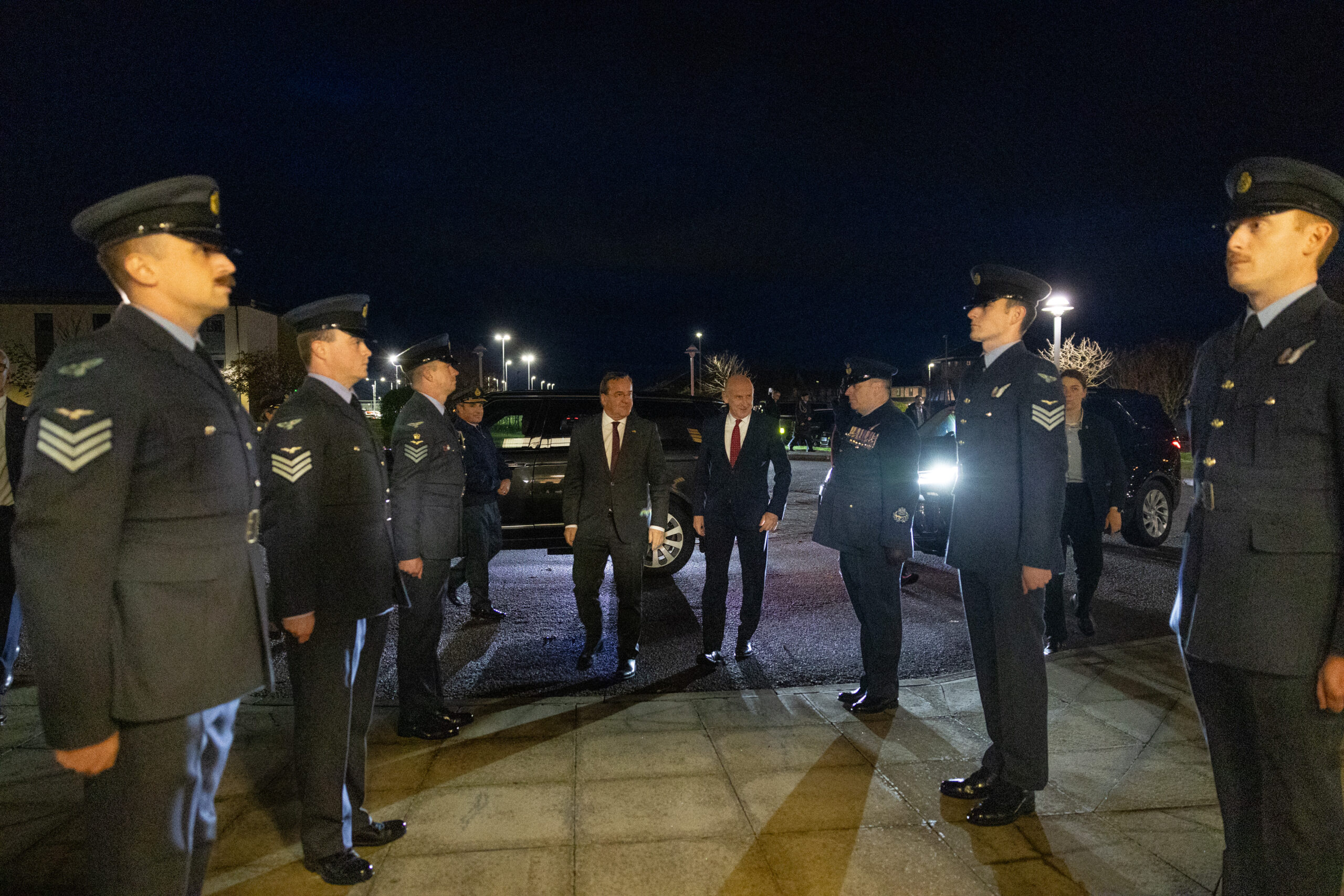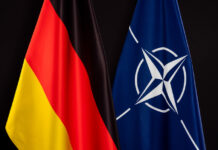A year on from the United Kingdom and Germany signing their strategic Trinity House Agreement on 23 October 2024, the two countries are further ramping up their co-operation to include joint operations to hunt Russian submarines and deeper co-ordination in the cyber domain.
UK Defence Secretary John Healey and German Defence Minister Boris Pistorius marked the first anniversary of the Trinity House Agreement on 23 October 2025 with a visit to RAF Lossiemouth: home of the Royal Air Force’s (RAF’s) Poseidon P-8A maritime patrol aircraft (MPA) fleet.
In the coming months one of the Deutsche Marine’s P-8As will visit RAF Lossiemouth for the first time ahead of future joint activity side-by-side with the RAF in the North Atlantic, where British and German P-8As will jointly seek to track Russian submarine activity.
German crews have already twice joined UK P-8A Poseidon MPAs operating from RAF Lossiemouth as part of NATO’s ‘Baltic Sentry’ missions, while Healey has reaffirmed plans for a joint Anglo-German purchase of advanced Sting Ray Mod 1 lightweight torpedoes to arm the two countries’ Poseidon fleets.
The RAF has nine operational P-8As, which are designated Poseidon MRA1s in RAF service, while the Deutsche Marine has eight P-8As on order and received its first aircraft on 1 October 2025.
Meanwhile, the new fifth Trinity House Lighthouse project will allow the UK’s new Cyber and Specialist Operations Command (CSOC) and the German Cyber and Information Domain Service to work more closely than ever before, enabling them to share data, intelligence and operational tools securely with each other and NATO allies. This includes the development of a secure cloud network: a digital system that allows the sharing of information in real time while defending against cyber attacks.
The UK and Germany are also stepping up their commitment to NATO, with closer collaboration to protect the alliance’s logistics and transport networks from cyber threats.
According to a UK Ministry of Defence (MoD) press release, since the launch of the Trinity House Agreement last year German companies have committed to invest GBP 800 million (EUR 918 million) in the UK defence industry over the next decade. Among these:
- Rheinmetall is proceeding with its landmark the UK Gun Hall project, which will restore the UK’s ability to manufacture large-calibre guns on home soil for the first time in decades. A virtual ground-breaking ceremony for the UK Gun Hall site in Telford took place on 11 September 2025.
- Helsing is planning a new maritime glider drone factory in Plymouth, backed by GBP 350 million of investment in artificial intelligence.
- ARX Robotics is making a GBP 45 million of investment, creating 90 high-skilled jobs at a new facility producing unmanned systems.
- Stark is opening a major drone manufacturing facility in Wiltshire, creating 100 jobs at its first site outside Germany.
Healey was quoted by the UK MoD as stating, “A year on from the Trinity House Agreement, the UK and Germany are working closer than ever to keep our two countries and Europe safe. Together we’re strengthening NATO, boosting our cyber defences, and ensuring our armed forces can operate side by side with ease – from patrolling the skies over Scotland to hunting Russian subs in the North Atlantic.
“This partnership is a cornerstone of European security, demonstrating unity and strength to our adversaries, and keeping us secure at home and strong abroad.”















